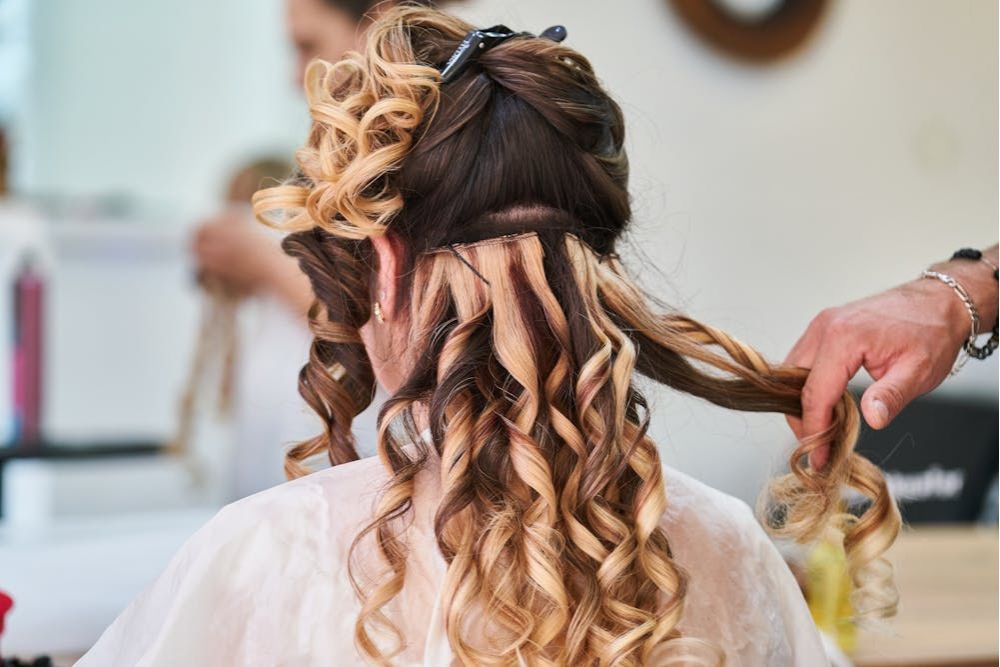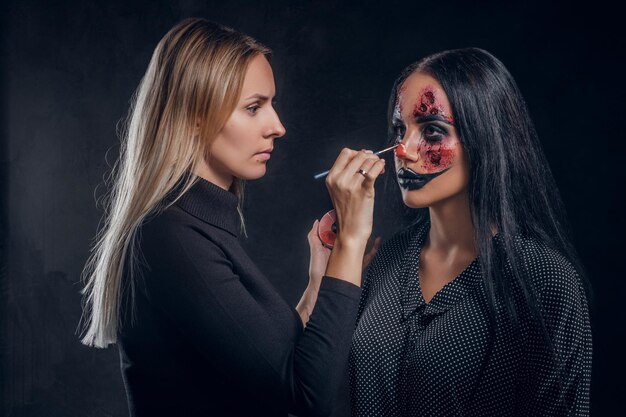Last updated on August 9th, 2025 at 06:05 pm
- Types of hair extensions
- DO Hair Extensions Damage Your Hairs?
- What are the Common Risks of Using Hair Extensions?
- What are the factors that Contribute to Hair Damage?
- How to Prevent Hair Damage from Extension?
- What to Avoid While Wearing Extensions
- The Cost of Hair Extension: Are They Worth It?
- FAQS
- Final Thoughts
Hair extensions can be a quick fix for long, thick hair. But many wonder: do they damage your natural hair? Extensions can be heavy or pull at your scalp, causing pain or even hair loss. Improper application or too much tension can weaken your strands.
Plus, if not cared for properly, they might cause split ends or breakage. The good news is, there are ways to reduce damage. This guide will help you understand different types of extensions, the risks involved, and how to keep your hair healthy. You’ll also discover safer alternatives for the look you want.
Types of hair extensions
Hair extensions are used to add length, volume, or thickness to natural hair. They come in various types, such as clip-ins, tape-ins, or sew-ins, and are made from synthetic or human hair. Each type caters to different hair types and needs, helping you achieve your desired look effortlessly.
Hair extensions come in different styles to suit various needs and preferences. Each type offers unique benefits, making it easy to choose the right one for your hair.
Clip-ons: These are temporary and simple to apply, perfect for adding volume or length for a special event.
Tape-ins: Lightweight and discreet, these extensions use medical-grade tape and are great for thin or fine hair.
Sew-ins (weaves): These extensions are sewn into braided natural hair, providing durability and a more permanent solution.
Fusion/Micro link extensions: These extensions are attached with keratin bonds or small beads, giving a natural, seamless look with fine finishing.
DO Hair Extensions Damage Your Hairs?
The simple and easy answer is: it depends. Hair extensions themselves don’t cause damage but improper application, maintenance, and removal can harm your natural hair. Let’s break down the common risks and contributing factors. To keep your natural hair healthy while using extensions, incorporate treatments that nourish and strengthen your hair.
What are the Common Risks of Using Hair Extensions?
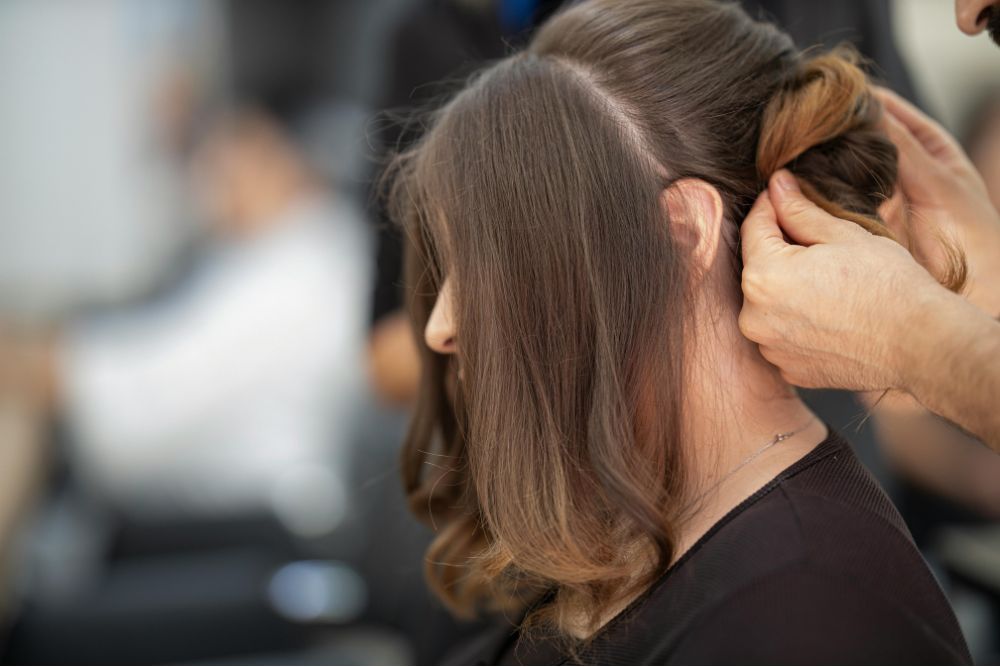
While hair extensions can give you a stunning look, they also come with potential risks that can damage your natural hair. Understanding these risks helps you make informed choices and maintain healthy hair.
Breakage
Extensions can place unnecessary stress on the roots of your natural hair, which over time may lead to breakage. The added weight of extensions pulls on your strands, making them more fragile and prone to snapping. Regular use without breaks can worsen the damage. To prevent hair fall, it’s important to give your hair regular rest periods between extensions.
Thinning
Long-term use of hair extensions without proper care can cause noticeable thinning. Constant tension on the hair roots weakens them, and without giving your natural hair a break, the hair follicles may not grow back as strong, leading to thinning patches.
Scalp Irritation
Poor-quality extensions or incorrect application can result in scalp discomfort. You may experience itching, soreness, or even infections if the extensions are not applied properly or if they irritate the scalp. Always ensure you’re using high-quality extensions for better comfort.
What are the factors that Contribute to Hair Damage?
Here are a few factors that contribute to hair damage.
Improper Installation
If extensions are installed too tightly or incorrectly, they can tug at your hair and scalp. This can weaken your natural hair over time, causing thinning or breakage. It’s important to ensure the extensions are applied properly and not too tight.
Low-Quality Extensions
Cheap, synthetic, or poorly made human hair extensions can cause more harm than good. They are prone to tangling, matting, and shedding, which can damage your natural hair. Always choose high-quality extensions to avoid these issues.
Neglect in Maintenance
Neglecting proper care for your extensions can lead to serious damage. Skipping regular cleaning, and conditioning, or avoiding heat protection can cause tangles, buildup, and premature wear. Regular maintenance is key to extending the lifespan of both your extensions and natural hair.
How to Prevent Hair Damage from Extension?
To prevent hair damage from extensions, it’s essential to take the right steps to protect both your natural hair and the extensions themselves. Here are three ways to keep your hair healthy while enjoying the benefits of extensions.
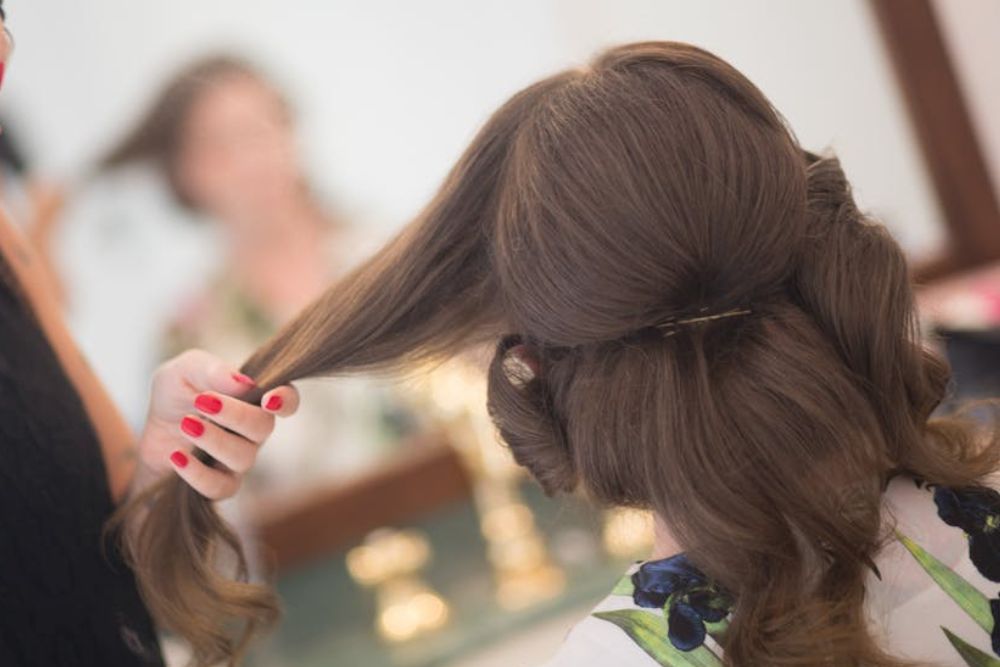
1. Ensure Proper Installation
A skilled professional should install your extensions to avoid tension on your scalp. Avoid tight placements that can stress the roots and lead to breakage. Proper installation ensures a natural, comfortable fit that minimizes long-term damage.
2. Regularly Maintain Extensions
Routine care is essential. Clean and condition your extensions regularly to prevent buildup and tangling. Avoid skipping maintenance to ensure the extensions remain in good condition, which also protects your natural hair from unnecessary strain.
3. Give Your Hair Breaks
Allow your natural hair some recovery time by alternating between wearing extensions and giving your scalp a break. Prolonged use without rest can weaken hair follicles, causing thinning or breakage. Take breaks to let your natural hair recover and stay healthy. Take breaks to let your natural hair recover and stay healthy, allowing your hair color to remain vibrant and beautiful for longer.
What to Avoid While Wearing Extensions
- Excessive Tightness: avoid extensions that feel too tight, as this can lead to scalp irritation.
- Using Harsh Product: steer clear of shampoos and conditioners with sulfate, and alcohol, as these can damage both the extension and your hair.
- Heat Overuse: avoid using high heat settings while styling extensions, as excessive heat can weaken the bond and damage the hair fiber.
The Cost of Hair Extension: Are They Worth It?
Hair extension can vary widely in cost, depending on the type, material, and installation method
Typical Price Ranges
- Clip-On Extensions: $100 to $500, depending on the quality and length.
- Tape-In Extensions: $200 to $600 for the initial application, plus $100 to $300 for maintenance every 6-8 weeks.
- Sew-In Extensions: $250 to $800, including the cost of hair and installation.
- Fusion/Micro-Link Extensions: $500 to $2,000, as they require more time and expertise to apply.
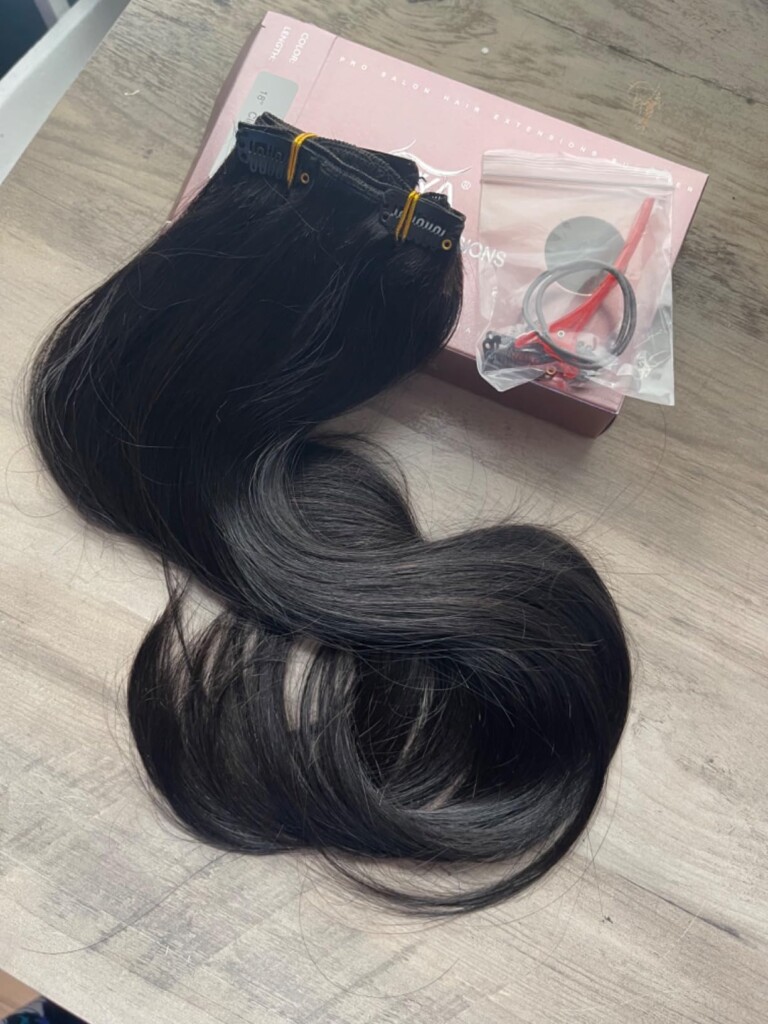
Disclaimer: This is an affiliate link, and we may earn a commission if you make a purchase through it. Rest assured, our recommendations are based on thorough research and personal experience to bring you the best products.
FAQS
Is Maybelline nude lipstick as good as MAC?
Both have their strengths. Maybelline nude lipstick is affordable and widely available, making it a good entry point. However, MAC is known for its extensive nude range with professional-grade formulas that last longer and suit a broader variety of undertones.
Can I wear nude lipstick without looking washed out?
Yes—choosing the right undertone is key. Warm skin tones pair best with peachy nudes, cool undertones with pinkish nudes, and neutral undertones can pull off a wider range.
Which is the best nude pink lipstick in MAC?
Not at all. Redheads can wear nude lipstick, but it’s best to pick warmer or peachy nudes rather than overly pale shades. This keeps lips looking alive and prevents a washed-out effect.
Final Thoughts
To sum up, hair extensions can transform your look, but they come with risks if not handled carefully. Proper installation, regular maintenance, and giving your hair breaks are key to preventing damage.
Always choose high-quality extensions and take the time to care for both them and your natural hair. With the right approach, you can enjoy beautiful, healthy hair without compromising its strength.
By being mindful of these steps, you’ll protect your natural hair and ensure your extensions last longer while keeping your scalp comfortable and irritation-free.
We have done extensive research on extensions.Spare some time to read our articles on


